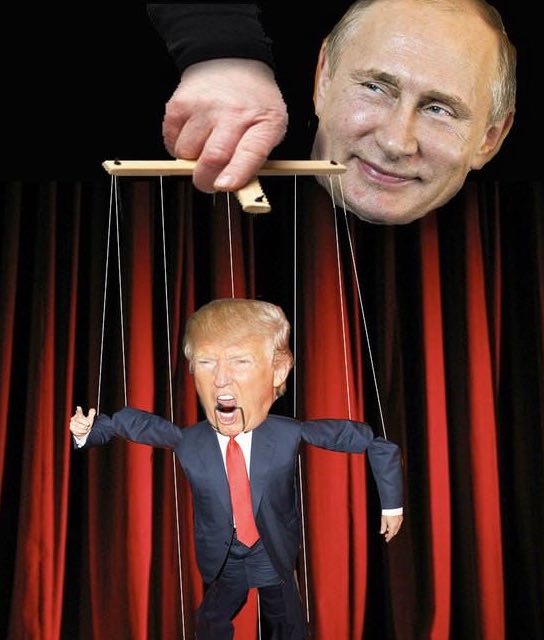It felt like I had stumbled into some weird kind of time warp yesterday morning as I was making coffee and listening to NPR’s “Morning Edition.” There was Cokie Roberts being interviewed about the current mass media obsession — the alleged hacking of the Democratic National Committee server by Russia, and President-elect Donald Trump’s refusal to accept the evidence-free claims of the Democratic political appointees heading the nation’s intel agencies that the the hack “definitely” happened.
Cokie bemoaned Trump’s dissing of the intel agencies and also his stated desire to develop friendly relations with Russia, saying, “This country has had a consistent policy for 70 years towards the Soviet Union and Russia, and Trump is trying to undo that.”
Think about that for a moment. On one level, the long-time NPR commentator is right: US policy towards the government in Moscow has been remarkably consistent — and hostile — for 70 years, albeit with a few brief periods of at least relative friendliness, as during the early and mid 1990s after the collapse of the Soviet Union. But that gets to the other point: There was, recall, a fundamental change that happened in 1989-90, when the Communist state founded in the Russian Revolution of 1917 collapsed, and the Soviet Union splintered into Russia and a bunch of smaller countries — former Soviets in the old empire — including Byelorussia, Ukraine, Georgia, Estonia, Latvia, Lithuania, and a bunch of stans in Central Asia.
The real question is, once the USSR ceased to exist and Russia, a rump country that, while geographically the largest in the world, is less than half the size of the US in population, found itself struggling to restructure it’s centralized state-owned economy into a modern capitalist one, shouldn’t the US have changed it’s “consistent policy” of hostility towards what remained of the old Soviet Union — particularly as Russia was no longer communist?
Instead of actively helping Russia recover, the US urged on President Boris Yeltsin a destructive “economic shock therapy” program of balanced budgets, open borders for imports and investment and, most importantly, a sell-off of state assets that quickly enabled corrupt former commissars to transform themselves into insanely wealthy new capitalist oligarchs.
While Russians struggled to survive through a period of rampant inflation, economic collapse and epic corruption, the US, instead of lending a helping hand as it had to the collapsed countries of Europe and after World War II (including our former bitter enemies, Germany and also Japan in Asia,), Washington under the Clinton administration began a program of aggressively and threateningly expanding the North Atlantic Treaty Organization (a Cold War relic of an outdated containment policy which should have, like the Warsaw Pact, been mercifully disbanded), forcing an economically strapped Russia to respond by still spending precious resources on restoring its hollowed out military.
 The widespread belief among liberal Dems that Trump is a Putin puppet resembles the Republican's 'birther' mania about Obama
The widespread belief among liberal Dems that Trump is a Putin puppet resembles the Republican's 'birther' mania about Obama
Yes, there has been a 70-year consistent policy of hostility towards Russia, not to mention unremitting anti-Russian propaganda in the US, as Roberts says, but that’s because foreign policy in the US has been in the grip of a Republican-Democrat bi-partisan consensus that argues that the US must work to maintain absolute military superiority over all real and potential rivals, forever. And that consensus views Russia as a major potential threat to that superiority.
That’s why we have a military budget of $600 billion, nearly three times as much China ($215 billion, much of that for domestic control purposes), another country that poses no threat to the US, and as all the rest of the world spends, while Russia’s budget is just 11 percent of that amount at $66 billion, ranking it behind third-ranked Saudi Arabia ($87 billion).
 Whatsapp: safety or vulnerability?
Whatsapp: safety or vulnerability?





